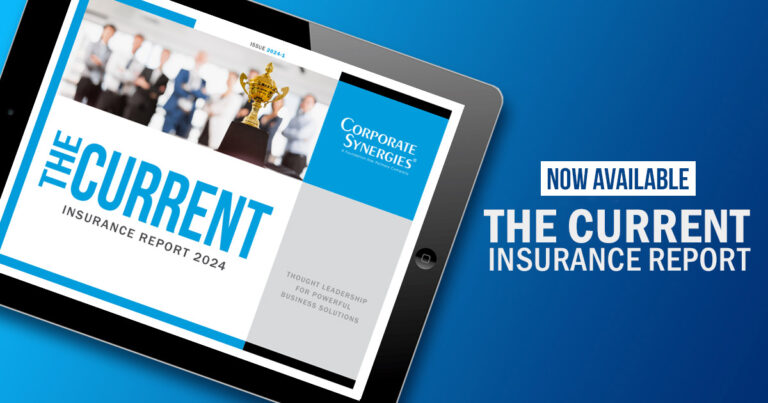The prescription drug market is evolving. The creation of biosimilars for drugs like Humira and increased utilization of GLP-1 medications, has given employers and pharmacy benefit managers (PBMs) a lot to consider regarding business strategy in 2024.
The US government has placed price caps on certain medications. The House passed legislation in December with regards to price transparency and cost. States are also passing legislation. Florida wants to import drugs from Canada to offset ballooning prescription costs for employers and employees. Ozempic, the first and most famous GLP-1 medication, otherwise known as Semaglutide and originally prescribed to diabetics, saw increased off-label usage as a weight loss drug. All of this and the three largest PBMs (Caremark, Express Scripts and OptumRx) have each excluded more than 600 drugs from their 2024 standard formularies. Effective April 1, 2024 CVS Caremark will remove Humira from its major commercial formularies.
Biosimilars are part of the story here. The first biosimilar competitor for Humira was launched on the U.S. market in January 2023. There are now 9 biosimilars for this one drug but only 2 of these biosimilars are interchangeable allowing pharmacists to prescribe either of them. The other 7 require new prescriptions from treating physicians for current patients. This could create an inconvenient situation and lead to patient noncompliance of drug therapy which has the potential to increase health plan costs for employers if patients experience medical crises.
More than a third of American struggle to afford their medications.
All three of the PBMs include high and low-list-price biosimilars from the same manufacturers. Some of these drugs cost up to 86% less than brand-name Humira. This improves plan affordability for plan sponsors and their participants. If your employee is accustomed to receiving Humira when they go to the pharmacy, chances are they will be prescribed one of these lower cost drugs in 2024. The price of popular brand-name drugs can drop up to 60% when a biosimilar is prescribed instead. That is huge when more than a third of Americans struggle to afford their medications.
However, AbbVie maintains control of the market share on Humira by warning health plans that if they recommend lower-cost biosimilars instead of Humira, they will lose rebates on Skyrizi and Rinvoq, two drugs with no generic alternatives. These drugs are listed at $120,000 a year. In essence, AbbVie stated that health plans could expect to see higher costs on two very expensive brand-name drugs if plan sponsors did not maintain Humira on their formularies.
So while biosimilars can produce savings in the future for employers and employees, pharmaceutical companies can and will continue to negotiate to maintain their profit margins. Yet, PBMs are also part of the problem. Express Scripts and OptumRx have put biosimilars on their formularies but at the same price as Humira. This PBM strategy gives doctors and patients no incentive to switch medications. Even as PBMs continue to expand access to biosimilar alternatives to Humira, PBM practices don’t necessarily mean health plans will see lower costs.
With GLP-1 drugs, the story looks different. There are only four drugs on the market and no biosimilars currently. GLP-1 drugs are effective in treating patients with Type 2 diabetes. However, the off-label use of these drugs for weight loss has led to a crippling shortage of Wegovy. The demand for these drugs is clearly outpacing the supply and employers should take note. There are an estimated 1 million patients taking this class of drugs today. That number is expected to grow to 15 million in 2030 and exceed $100 billion in spend when it does. More than 50% of employers currently cover weight loss for their employees but all employers may see an uptick on their prescription spend when these drugs are prescribed to employees. 42% of Americans are currently obese and would potentially qualify. In a report released by Express Scripts, some estimates suggest that treating just the entire severely obese population could increase all current U.S. drug spending by over 50%. The financial impact of this would be borne by both PBMs and employers. A thorough analysis of the cost and quality of care provided by their health plans should be done by employers to create appropriate strategies to address the potential fallout.
So while biosimilars may pave the way to reducing plan costs, GLP-1s have the potential to severely impact plan budgets. Employers should talk to their broker partners about how to restructure their formulary lists going forward. Careful long-term management begins with knowing your own population and studying the claims data to make plan design changes as necessary.
No doubt 2024 will bring with it more shifts in the prescription drug market. The first question that employers should ask themselves is whether their broker partner is reviewing PBM contracts appropriately in order to assist? Employers who can adapt to the needs of their own population can stay ahead of price shocks when their budgets are in review.
Sources
Drugchannels “The Big Three PBMs’ 2024 Formulary Exclusions: Biosimilar Humira Battles, CVS Health’s Weird Strategy, and the Insulin Shakeup
KFF Health News “Save billions or stick with Humira? Drug Brokers Steer Americans to the Costly Choice”





